CAMP ARIFJAN, Kuwait (Dec. 18, 2009) -- Secretary of the Army John McHugh viewed the drawdown of forces process and other sustainment operations here during a visit with Third Army yesterday.
The 21st Secretary of the Army met with Soldiers, toured multiple facilities, and personally drove several new variants of Mine-Resistant Ambush-Protected vehicles known as MRAPs.
McHugh began his visit by walking through the Theater Redistribution Center at Camp Arifjan. The center supports Third Army with non-stop operations to sort and determine what equipment coming from Iraq can be repaired or reused in support of operations elsewhere.
"I would say about 60 percent of what we receive, we are able to redistribute," said Michael Hamilton, operations manager, Theater Redistribution Center. "Everywhere there is something going on. We have nearly 600 shipping containers ready to be unloaded right now."
One of the highlights of McHugh's visit was a tour of the MRAP Sustainment Facility. The United States Armed Forces have fielded approximately 11,000 MRAPs through the facility since the vehicle was first introduced into Iraq in 2007.
McHugh focused his attention on Heavy Equipment Transports and Mine Resistant Ambush Protected vehicles, both of which have played a pivotal role in Operation Iraqi Freedom.
"Third Army is doing a terrific job. They have earned their deserved reputation for taking on the big challenges that are involved, that we are going through right now, like the responsible drawdown of Iraq and more than exceeded expectations," said McHugh.
Originally established to receive materials used in the construction and equipping of new MRAPs to become mission capable for operations in Iraq, the MRAP Sustainment Facility has transformed to receive the vehicles back from Iraq and prepare them for new challenges elsewhere.
"The MRAP is a vehicle that has become critically important to the job of keeping our forces safe," said McHugh. "There has been some 30 variants which makes it an interesting challenge to make sure we are going through the available stock, resetting it, doing it the best possible way and the quickest possible way so that it can be assigned or reassigned in the [CENTCOM area of operations]."
After test driving several variants of the MRAP at the facility, he headed back to Camp Arifjan and visited with Third Army Commander, Lt. Gen. William Webster, and a cross section of Soldiers serving with Third Army. McHugh stayed for dinner and continued the visit by asking Soldiers about why they joined the Army and how they felt about their mission.
After dinner, McHugh shook each Soldier's hand and thanked them for their service.
"People are out there doing good things, making friends, establishing freedom in some very difficult places," said McHugh. "As Americans that is something we can all be grateful for."


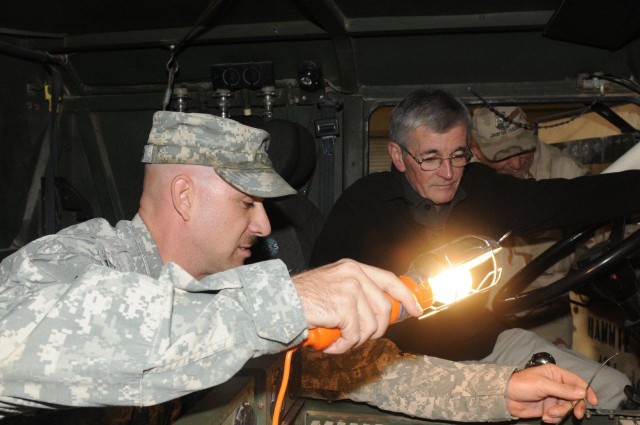
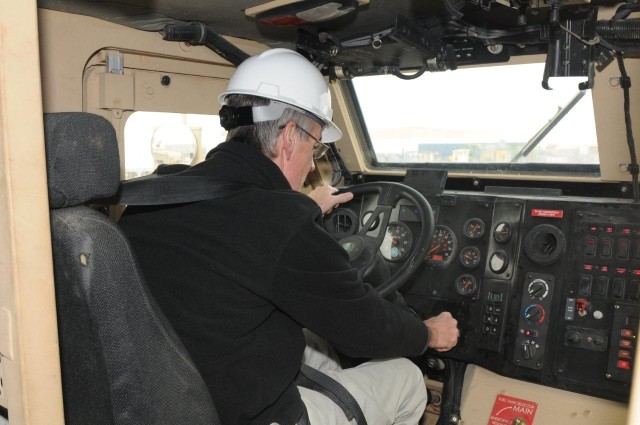
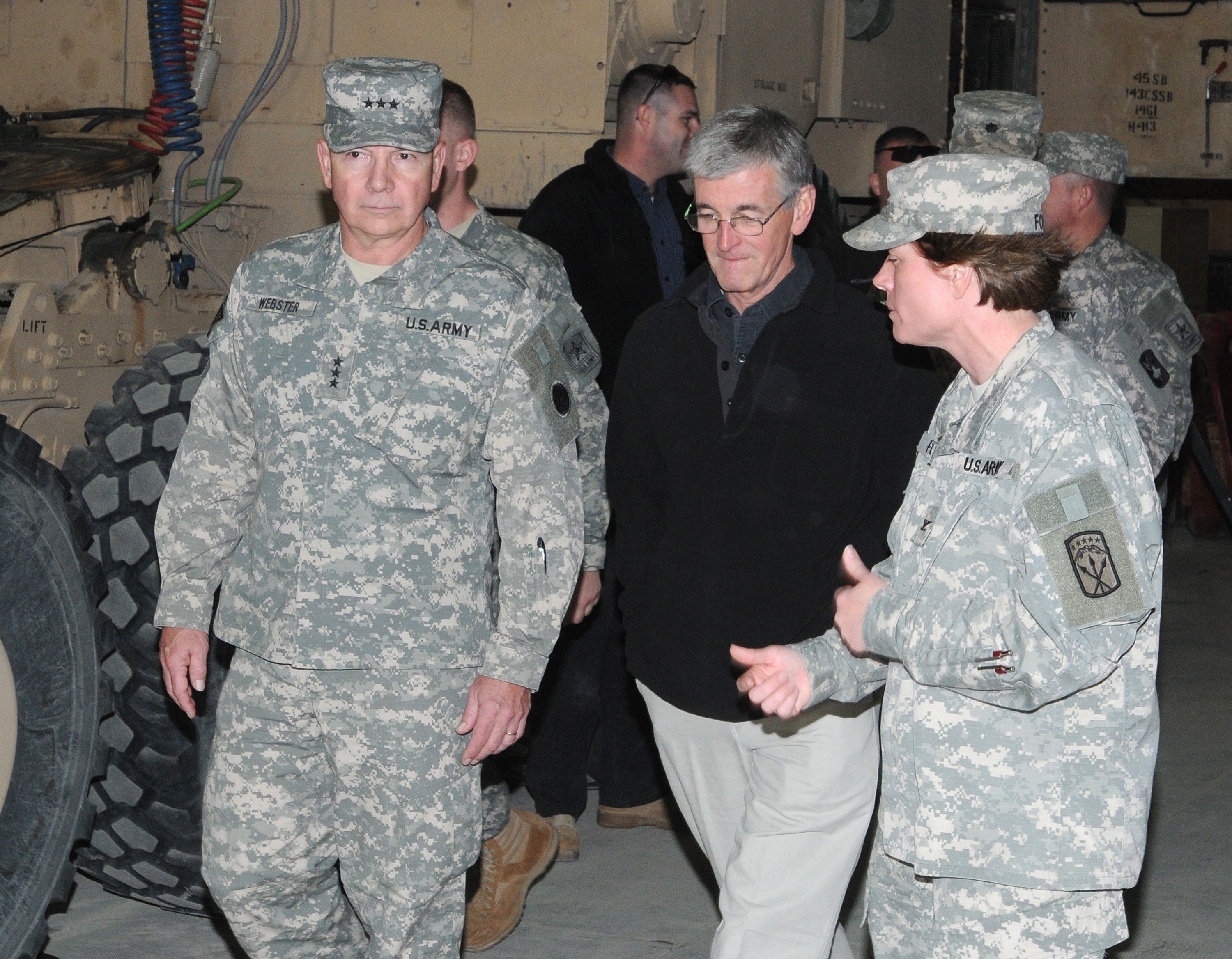
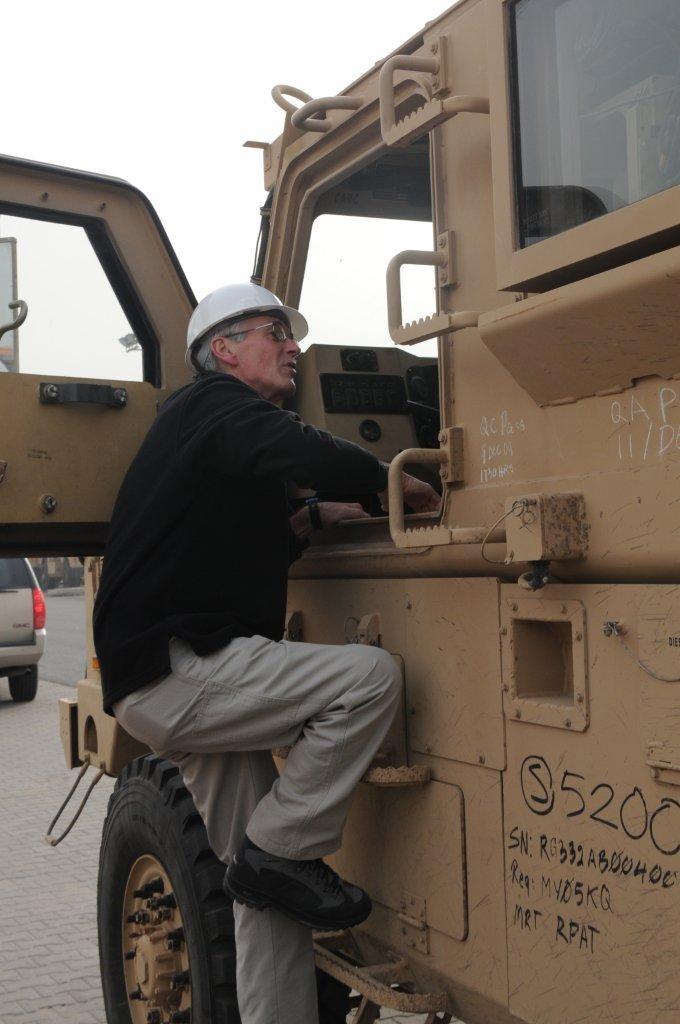
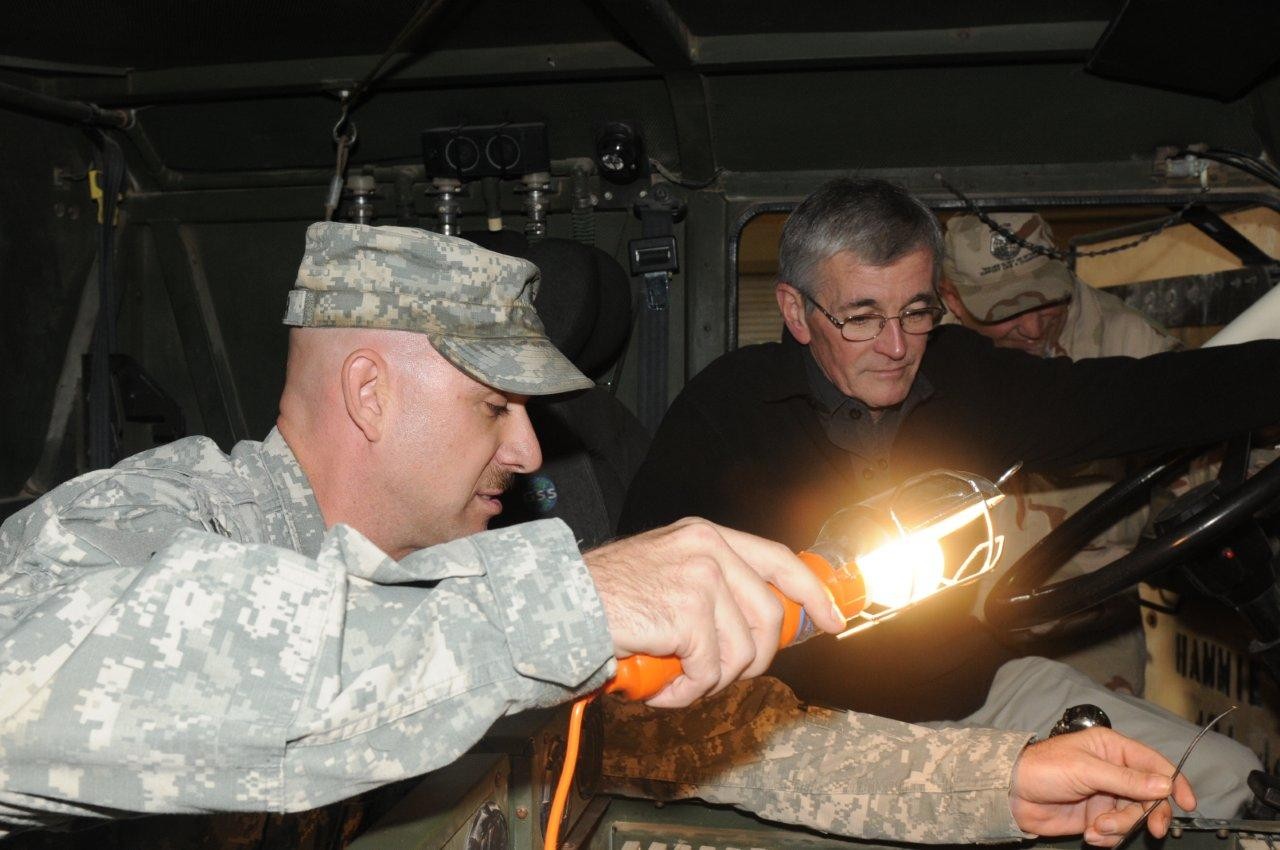
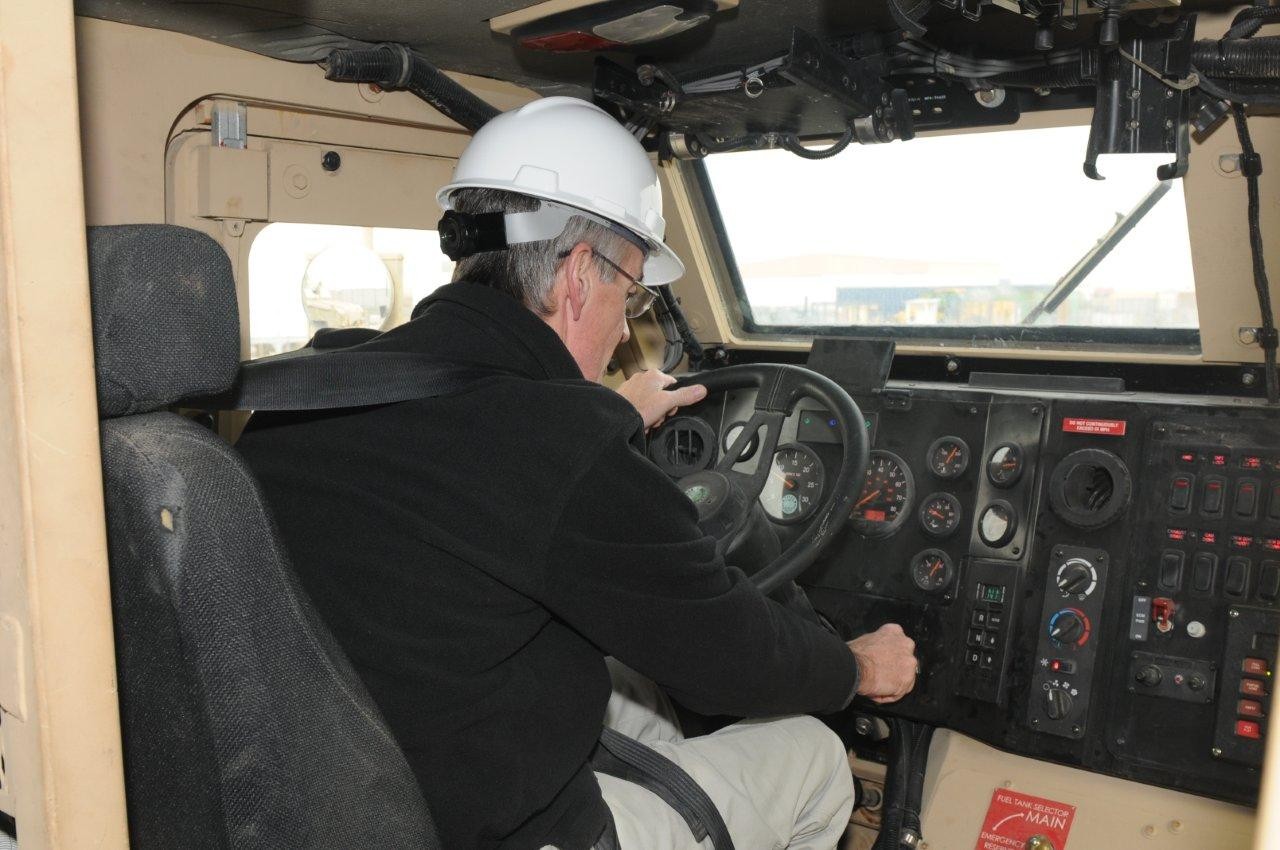
Social Sharing